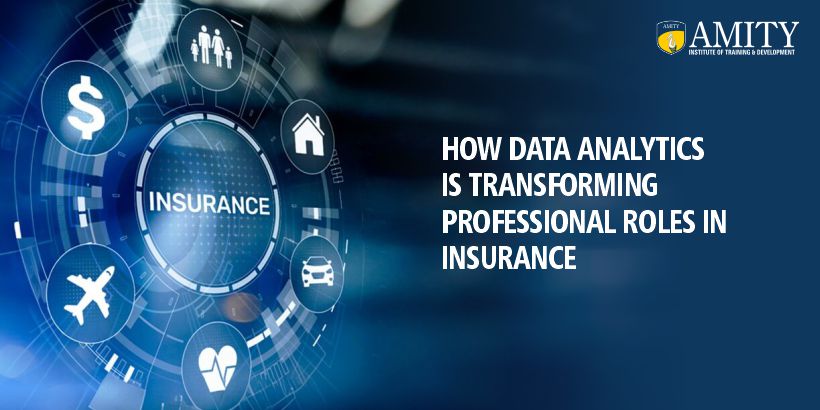Tech-Driven Solutions

Data analytics is making all the difference in today’s fast-changing insurance world. It helps improve decisions, smooth out operations, and gives a personalized experience to customer experiences. Predictive models and real-time data enable professionals using data analytics tools to make more accurate risk assessments. This increase in efficiency not only creates new but better products.
Right data analytics skills can get one thriving in such a world. In fact, many of the quality programs, just like the ones conducted by Google and IBM, teach one vital skill such as SQL, Python, and Tableau. There is a higher demand for skilled people who are expected to reach a median salary of over $93,000, thus getting a data analytics certification can do the trick for a career in insurance.
In this blog, we’re going to see how analysis of data is changing the insurance world; we’ll discuss the skills it requires and the way to obtain these skills.
Key Takeaways
- The use of data analysis changes jobs in insurance.
- Career growth has to do with courses like AITD.
- More profits and better operations occur if companies use their data well.
- There is a growing need for skilled people where digital changes accelerate.

The Role of Data Analytics in Insurance Transformation
Data analysis concerns the use of computers to analyze data. In the insurance industry, it helps organizations make smart decisions with historical and present data. Using data analytics tools, there is the ability to work better, connect more with customers, and thereby manage risks better.
DO YOU KNOW? More than 80% of insurance executives believe data-driven decisions are a success factor.
Understanding the Various Types of Data Analytics in Insurance
Insurance uses various types of data analysis:
- Descriptive Analytics: It goes through past data to predict trends. Insurers check and use it to find historical claims and customer behavior history.
- Predictive Analytics: This analytics uses models and learning in order to predict the future. For instance, insurers are able to guess claim frequency and severity from past data.
- Prescriptive Analytics: This next generation analytics form suggests action through prediction. It helps insurers charge better prices and to underwrite better.

DO YOU KNOW? 70% of insurance companies use data to enhance the way they work and serve their customers.
How Data transformation is Revolutionizing Insurance Professional Roles
Data is replacing traditional tasks insurance professionals used to perform:
- Underwriters: Predictive models enable underwriters to better predict risks and thus provide smarter pricing.
- Claims Adjusters: Automated systems with data analytics software enable the insurance company to make claims faster, allowing adjusters to concentrate on tougher cases.
- Sales. Marketing Experts: Data insights enable the marketing team to craft highly personalized campaigns for individual customers.
- Risk Managers: The new risk assessment system enables risk managers to identify and prevent threats at an early stage.

DO YOU KNOW? The global insurance market is likely to cover an approximately $10 trillion amount by 2028, as recorded in Statista.
Data Analytics Skills: Essential for Modern Insurance Professionals
With increasing data-based decisions, insurance professionals must develop some essential skills such as:
With increasing decisions based on data, insurance professionals ought to develop some essential skills, including
- Be good at statistical analysis and data understanding.
- Familiarity with different analytics tools and technologies, such as SQL, R, Python, Tableau, and Power BI.
- Problem-solving ability.
- The ability to understand how machine learning applies to risk assessment.

DO YOU KNOW? Soon, there will be an industry where 80 percent of auto claims are handled automatically.
As revealed by Zhang et al. (2024), in “Research on Digital Transformation in the Insurance Industry,” the insurance industry is being transformed. AI and technologies like big data and blockchain make it more engaging to be an insurer. They help make mass-produced products more personalized and more efficient in responding to their customers.
Leveraging Data Analytics Platforms for Greater Efficiency in Insurance
Data profiling is the main engine behind making insurance work better. It identifies and corrects problems in underwriting and claims management. For instance, automated systems can quickly analyze claim data, rather than taking days, hours will be used. Predictive models enable insurers to identify at-risk customers even before they make an application, which would later go a long way in improving risk management.
The insurance landscape is fast-changing. Learning is important for anyone. Skills can become outdated very quickly. So, taking data integration courses becomes one good importance.
Places such as Amity Institute of Training and Development (AITD) provide special training for the insurance pros in the latest matter of data tracking.
How AITD Will Prepare Future Insurance Professionals in Response to the Changing Needs of Industry
AITD prepares the insurance professional for a data-driven world. AITD teaches how to use data analysis tools well through comprehensive data analytics courses.

DO YOU KNOW? Participants in AITD’s programs have reportedly enhanced their job performance by as much as 40% because of improved analytical skills.
Become an Insurance Professional with AITD Data Analytics Training
- Courses offered: by specialist industries providing training on current tools and methods for data analysis.
- Applied: within the curriculum, with practical exposures of real-life scenario programs that would initiate professionals to instant exposure with challenges in the insurance sector.
- Certification: AITD’s data automation training provides participants with recognized data analytics certification.
- Location Advantage: AITD offers training in main cities such as Bangalore, hence finding the place is not a problem for working professionals.
- Expert Instructors: Courses are delivered by industry experts who bring valuable insights and experience, so they have been prepared to meet the needs of the evolved sector of the insurance industry.
DO YOU KNOW? AITD offers a number of courses in data analytics in Bangalore focused on the needs of professionals looking to advance their skills.
Future of Work in Insurance: Using Data Tracking Platforms
As the insurance business develops, professionals are expected to update with the new methods and technologies; therefore, AITD’s training programs enable its participants to be competitive in their ever-changing world of work, thus making them great assets to their organizations.
By pursuing AITD as your data modeling training option, you can really enrich your prospects in the insurance industry. Focused on its practical skills and industry relevance, AITD takes pride in providing the right foundation for the next generation of insurance data professionals.







